The question of power has assumed particular importance both in the realm of theory and practical politics. With politics turning into a business enterprise – in fact the most flourishing industry which knows no recession or slump – a new breed of political entrepreneur has emerged ready to storm the citadels of power. Almost all the politicians during their own life time groom their own sons and daughters and other close relatives to enter politics. It has become by and large a family business. Political corruption is a part of practicing politics everywhere, sort of a necessary evil or price of political freedom. Freedom to govern includes freedom to be corrupt. Here the focus is on how Gandhi viewed political power, what is its role in society: can it be used non-violently: can the element of coercion be removed from it in accordance with Gandhi’s view of non-violent moral power: what was its nature when Gandhi gained political power? Did he succeed in eliminating coercive element in his exercise of power? Generally it is assumed that political power flows from top to bottom but Gandhi tried to put the whole process in the reverse gear and generated power from below. To what extent he had been successful in his attempt? It is a matter of great interest to any student of political behaviour that while Gandhi was suspicious of the possible abuses of political power and advocated complete decentralization of it, he himself exercised immense political power. Was it in accord with his suspicion of power? Was there any dichotomy between his theory and practice? Are corruption and criminalisation always the essential ingredients of politics? Has it become a business or an industry? These questions cannot be answered unless we study how Gandhi rose to power and how he wielded it after having gained it. This book gives different aspects of his political thinking in the light of his actual behaviour in tackling political issues. This book pierces the all pervasive smog of permissiveness surrounding the canker of corruption eating into the vitals of our body politic.
Power, Politics and Corruption: A Gandhian Solution
$20.70
$23.00
In stock
Free & Quick Delivery Worldwide
All orders amounting to US$ 50 or more qualify for Free Delivery Worldwide. For orders less than US$ 50, we offer Standard Delivery at $14 per book.
ABOUT THE AUTHOR Jai Narain Sharma
Dr. Jai Narain Sharma (b. 1951) is on the faculty of the Department of Gandhian Studies, Panjab University, Chandigarh. He obtained his Master's Degrees in Economics and Political Science from Panjab University, M.Phil. from H.P. University, Shimla and Ph.D. from Panjab University. Dr. Sharma's area of specialization include Gandhian Economics, Human Right, Research Methodology, Political Power, Human Resource Management and Ecology. Dr. Sharma has distinguished himself as a Gandhian scholar and management expert. He has been connected with a number of national and international organizations in various capacities. He is a member of Board of Studies, Nagpur University, Nagpur and Mahatma Gandhi Kashi Vidyapith, Varanasi and a member of Research Degree Committee of the Department of Political Science. H.P. University, Shimla. He is also the General Secretary of Idian Society of Gandhian Studies and the member on the Presidium of the Allaince for Sarvodaya. He regularly writes for leading newspapers, and published more than hundred research papers in professional journals. His earlier books "Gandhi's View of Political Power", "Economics of Defence: A Study of SAARC Countries", "Economic Thought of Mahatma Gandhi" and Human Resource Management are well received and widely acclaimed as scholarly works of lasting values. He has also been invited by the University Grant Commission to write a text book on ‘Defence Economics' for University students. A rare combination of intellectualism and acativism Dr. Sharma is a multifaceted personality. He has earned reputation as an authentic interpreter of Gandhian Philosophy and Management expert.
reviews
0 in total
Review by Anonymous
Be the first to review “Power, Politics and Corruption: A Gandhian Solution” Cancel reply
You must be logged in to post a review.
Bibliographic information
Title
Power, Politics and Corruption: A Gandhian Solution
Author
Edition
1st ed.
Publisher
ISBN
8176294810
Length
xvi+247p., Notes; References; Bibliography; Index; 23cm.
Subjects

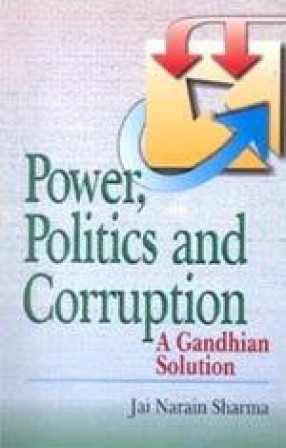
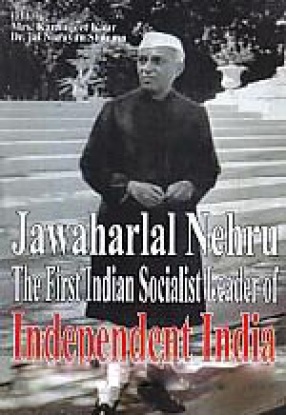

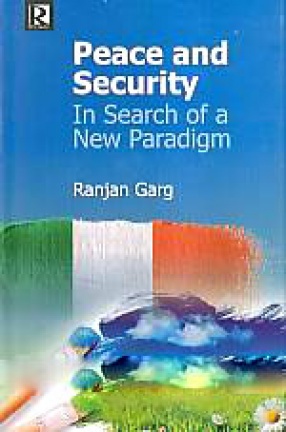
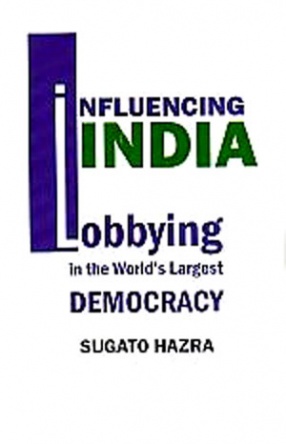
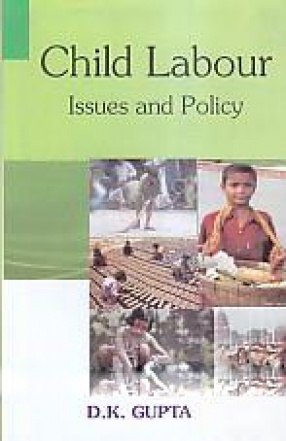
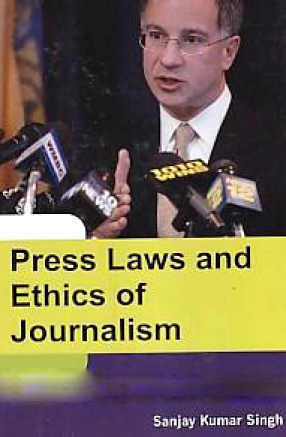
There are no reviews yet.